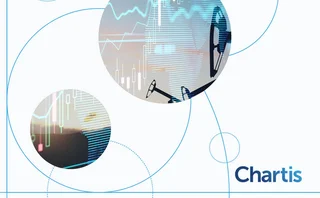
Energy stirs political passions around the globe
The politics of energy are just as fascinating as the physical processes behind it, and are rarely subtle

Other than food, water and air, it is hard to think of something as crucial to the modern economy as energy. For this reason, the politics of energy are every bit as interesting as the physical processes of converting, transferring and storing it.
Around the world, the politics of energy stir strong passions. Just look at Russia's attempts to throw its weight around in eastern Europe, and the heated environmental opposition to the construction of the Keystone XL Pipeline in North America.
Energy prices are a particular bone of contention. In the UK, where the electricity market is being probed by the Competition and Markets Authority (CMA), there are long-held suspicions that the 'big six' suppliers have been exercising their influence to keep wholesale prices high and stamp out competition. Whether this is actually happening is unclear. An update released by the CMA on February 18 paid more attention to criticisms of the country's retail market, which is bedevilled by low rates of switching between suppliers.
Most sparks tend to fly over oil. The record high oil prices seen in mid-2008 are often cited by supporters of plans by the US Commodity Futures Trading Commission (CFTC) to impose speculative position limits on commodity derivatives. But a September 2008 report by the CFTC showed the level of speculative interest in oil actually diminished as prices increased that year.
More recently, speculators are being blamed for creating the opposite effect. On February 19, Brent North Sea crude oil futures closed at $60.21 a barrel on Atlanta-based Ice, down 48% compared with their previous closing high in June 2014.
A September 2008 report by the CFTC showed the level of speculative interest in oil actually diminished as prices increased that year
Amid the decline, developing economies are being urged to use the comfort of cheaper oil to move away from fossil fuel subsidies. Such a strategy makes sense; after all, it is a lot easier to mend the roof while the sun is shining.
Careening oil prices also provided plenty of discussion at International Petroleum Week in London in early February. Among the speakers was Igor Sechin, president and chairman of Moscow-based oil giant Rosneft, who predicted low prices would give rise to an excessive reduction in investment and a shortage of oil by as early as the fourth quarter of 2015. The oil market no longer reflected physical reality, he claimed, and was distorted by a proliferation of paper trading and Western economic sanctions against Russia.
All of which proves the politics of energy, while fascinating, are rarely subtle.
Only users who have a paid subscription or are part of a corporate subscription are able to print or copy content.
To access these options, along with all other subscription benefits, please contact info@risk.net or view our subscription options here: http://subscriptions.risk.net/subscribe
You are currently unable to print this content. Please contact info@risk.net to find out more.
You are currently unable to copy this content. Please contact info@risk.net to find out more.
Copyright Infopro Digital Limited. All rights reserved.
As outlined in our terms and conditions, https://www.infopro-digital.com/terms-and-conditions/subscriptions/ (point 2.4), printing is limited to a single copy.
If you would like to purchase additional rights please email info@risk.net
Copyright Infopro Digital Limited. All rights reserved.
You may share this content using our article tools. As outlined in our terms and conditions, https://www.infopro-digital.com/terms-and-conditions/subscriptions/ (clause 2.4), an Authorised User may only make one copy of the materials for their own personal use. You must also comply with the restrictions in clause 2.5.
If you would like to purchase additional rights please email info@risk.net
More on Energy
ETRM systems 2024: market update and vendor landscape
This Chartis report evaluates energy trading and risk management systems that provide front-to-back, asset class-specific and geography-specific coverage, and considers the full energy trade lifecycle
CTRM systems 2024: market update and vendor landscape
A Chartis report on commodity trading and risk management systems that considers its different applications and addresses the market and vendor dynamics to determine the long-term and structural impacts of the overarching market evolution on the…
Energy Risk Commodity Rankings 2024: markets buffeted by geopolitics and economic woes
Winners of the 2024 Commodity Rankings steeled clients to navigate competing forces
Chartis Energy50
The latest iteration of Chartis’ Energy50 ranking
Energy trade surveillance solutions 2023: market and vendor landscape
The market for energy trading surveillance solutions, though small, is expanding as specialist vendors emerge, catering to diverse geographies and market specifics. These vendors, which originate from various sectors, contribute further to the market’s…
Achieving net zero with carbon offsets: best practices and what to avoid
A survey by Risk.net and ION Commodities found that firms are wary of using carbon offsets in their net-zero strategies. While this is understandable, given the reputational risk of many offset projects, it is likely to be extremely difficult and more…
Chartis Energy50 2023
The latest iteration of Chartis' Energy50 2023 ranking and report considers the key issues in today’s energy space, and assesses the vendors operating within it
ION Commodities: spotlight on risk management trends
Energy Risk Software Rankings and awards winner’s interview: ION Commodities







